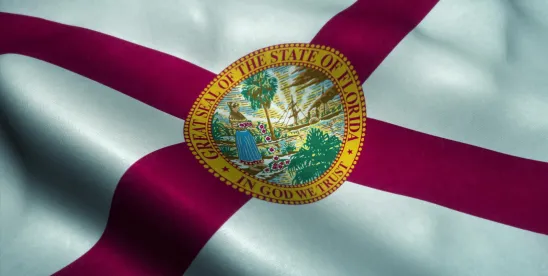On April 24, 2025, Florida lawmakers passed business-friendly legislation that impacts Florida’s regulation of noncompete and garden leave agreements and expands employer enforcement power for such agreements. The bill creates the Contracts Honoring Opportunity, Investment, Confidentiality, and Economic Growth (“CHOICE”) Act, which governs two types of agreements: (1) covered garden leave agreements and (2) covered noncompete agreements. Both types of agreements protect the confidentiality of employer information and client relationships, but differ as to when the protection applies; covered garden leave agreements apply while an employee remains employed with the employer, whereas covered noncompete agreements apply after an employee has left employment. Under the CHOICE Act, there is a presumption that covered noncompete and garden leave agreements with a duration of up to four years are enforceable so long as certain technical requirements are followed. The bill, awaiting Governor Ron DeSantis’s signature, is set to take effect on July 1, 2025.
Who is covered under the CHOICE Act?
The new legislation applies to certain high-earning employees and their employers, specifically, “covered employees” and “covered employers.” A “covered employer” is any employer who employs or engages with a covered employee. A “covered employee” is an employee or individual contractor who earns or is reasonably expected to earn a salary greater than twice the annual mean wage of the Florida county where the employer maintains its principal place of business, or the Florida county where the employee resides, if the employer’s principal place of business is not located in Florida. (Note that healthcare practitioners are explicitly excluded from this definition.)
Covered garden leave agreements
“Garden leave” refers to a period defined by contract when an employee typically completes little to no work but remains employed and receives normal salary and benefits. During this period, an employee on garden leave cannot work for a competitor because the employee is still bound by the contractual terms of their employment, including applicable confidentiality obligations, a duty of loyalty, or other similar restrictions. Thus, garden leave precludes an employee from using their employer’s proprietary information to gain a competitive advantage in another venture, which protects the employer’s business interests.
Under the CHOICE Act, a “covered garden leave agreement” is a written agreement or a provision within a contract between an employee and employer where the employer is required to retain the employee on payroll for a period of up to four years but is not permitted to assign work. The agreement is fully enforceable if:
- the covered employee was advised in writing of the right to seek legal counsel before execution of the agreement and was provided at least seven days to review the agreement;
- the covered employee acknowledges, in writing, receipt of confidential information or customer relationships; and
- the covered garden leave agreement provides that:
- after the first 90 days of the notice period (the date from the employer or employee’s written notice of intent to terminate the employee’s employment through the date of termination designated in the garden leave agreement), the covered employee does not have to provide services to the employer;
- the employee may engage in nonwork activities, like travel or a hobby, at any time during the remainder of the notice period;
- the covered employee may, with the permission of the covered employer, work for another employer while still employed by the covered employer during the remainder of the notice period; and
- the garden leave agreement notice period may be reduced during the notice period if the covered employer provides at least 30 days advance notice in writing to the covered employee.
Covered noncompete agreements
A noncompete agreement refers to an agreement between an employer and an employee that restricts the employee’s post-employment work activities. Employers use noncompete agreements to provide greater assurances that their confidential and proprietary business information and valuable customer relationships will not be accessible to competitors for a defined period of time.
The CHOICE Act permits covered noncompete agreements that restrict a covered employee from working for another employer for up to four years if the covered employee would provide similar services in the new role or it is reasonably likely the covered employee would use the covered employer’s confidential information or customer relationships in their new role.
Under the CHOICE Act, a “covered noncompete agreement” is fully enforceable if:
- the employee was advised, in writing, of the right to seek legal counsel before execution of the agreement and was provided at least seven days to review the agreement;
- the employee acknowledges, in writing, that in the course of employment the employee will receive confidential information or customer relationships; and
- the agreement provides that the noncompete period is reduced day-for-day by any nonworking portion of a concurrent covered garden leave agreement, if applicable.
Enforcing covered agreements under the CHOICE Act
Notably, the CHOICE Act creates a presumption that covered noncompete and garden leave agreements that are reasonable in geographic scope are enforceable and do not violate public policy, placing the burden on the employee to show that the agreement should not be enforced. The CHOICE Act also empowers employers to enjoin alleged violations by any employee subject to a covered agreement, including both former employees bound by a noncompete and current employees on garden leave.
Specifically, upon a covered employer’s application seeking enforcement of a covered agreement, a court must preliminarily restrain a covered employee from providing services to another employer during the notice period. The court may then modify or dissolve the injunction only if the covered employee establishes by clear and convincing evidence that:
- the covered employee will not use confidential information or customer relationships of the covered employer or provide services similar to that provided to the covered employer;
- the covered employer failed to pay the salary or grant the benefits provided for in a covered agreement; or
- the new employer is not engaged or preparing to engage in similar business activity within the geographic area.
Key Steps for Employers
While this new legislation is good news for Florida employers, it is important to remember that noncompete enforceability varies by state, with some states like California, Massachusetts, and New York strongly disfavoring (and in some cases outright prohibiting) such agreements. Thus, employers should always consult legal counsel when drafting such agreements – particularly when hiring remote or employees working in more than one state – rather than using form noncompete agreements that may be unenforceable in some jurisdictions. With several states, like Florida, reversing the general trend of limiting similar types of restrictive covenants, employers must navigate an increasingly complex legal environment, and employers and employees alike should be cognizant of the impending changes as they look to adhere to and capitalize on the new legal landscape. Florida employers wanting to take advantage of these expanded protections should review their current noncompete and garden leave practices to ensure compliance with this new legislation.




 />i
/>i
